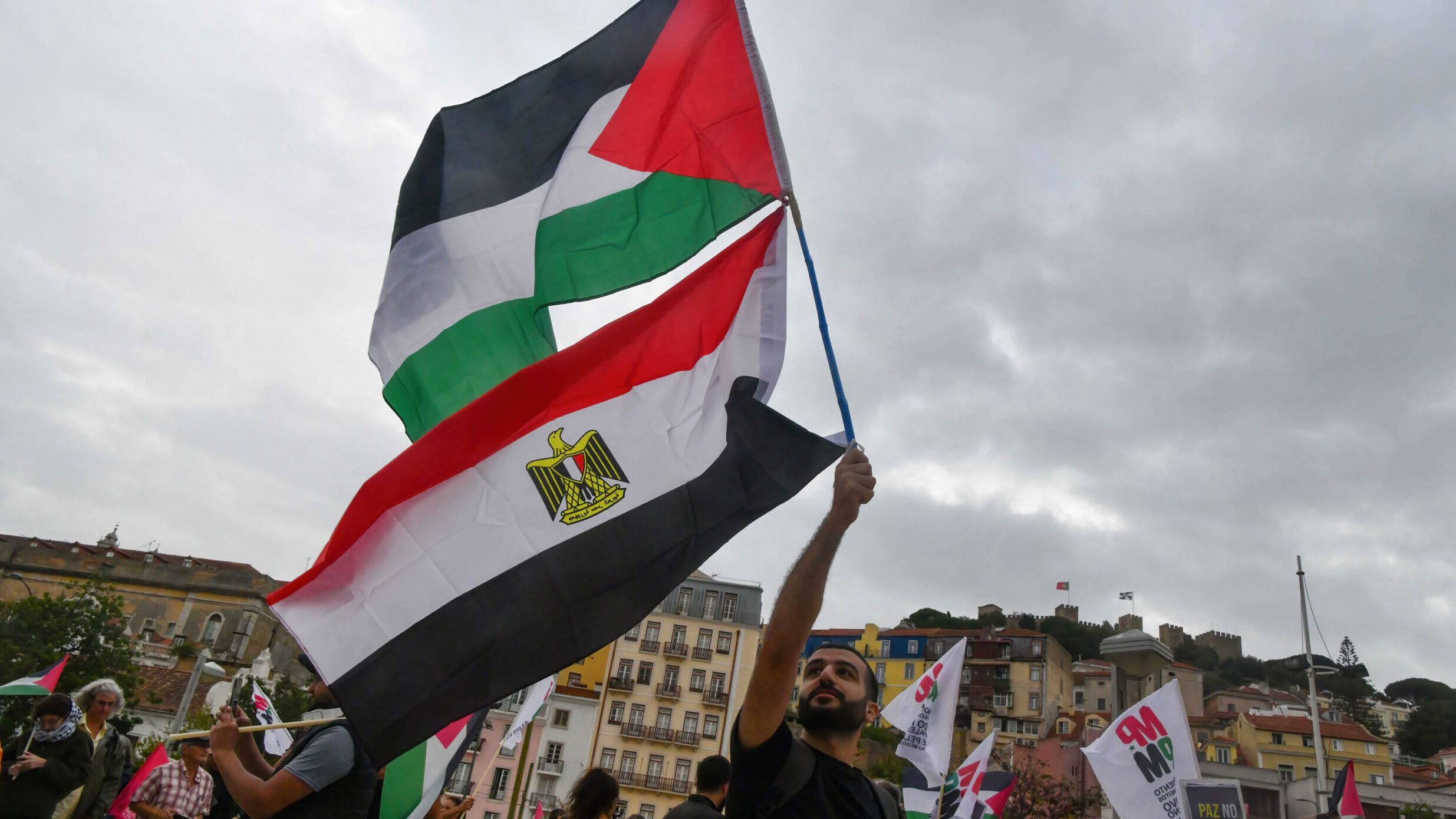Egyptian Action on 3 Axes To Contain the War
Al-Ahram, Egypt, October 21
Amid explosions and the deafening screams of innocent children and women in Gaza, and with sirens sounding in Tel Aviv, Ashkelon, and surrounding settlements, signaling rocket attacks from armed Palestinian groups, President Abdel Fattah el-Sisi held a crucial meeting with German Chancellor Olaf Scholz in Cairo to discuss the rapidly unfolding events in the region. The latest tragedy to strike the Palestinian people is the devastating massacre at al-Ahli Baptist Hospital in Gaza, which claimed the lives of approximately many innocent victims and left scores of others wounded. This horrific incident sent shock waves through the conscience of the global community, exposing the harrowing human suffering and turmoil that continues to plague the Gaza Strip, where the sound of bombs is a constant presence and the rivers of blood never seem to cease. In light of this grave situation, the Egyptian leadership has taken swift action on three fronts. Firstly, they have called for an immediate cease-fire, with the possibility of extending it and providing crucial supplies such as medical aid, food, fuel, and clean drinking water to the more than 2 million people living in Gaza. Every hour that passes without these essential goods reaching the civilians trapped in the violence, more innocent lives are lost and countless others are left to suffer without access to proper medical care or basic necessities. El-Sisi has placed this humanitarian crisis at the top of his agenda, recognizing the urgent need to alleviate the devastating effects of this ongoing conflict. Reports from Gaza paint a distressing picture of shortages in crucial medical supplies, makeshift surgeries performed in unsanitary conditions without proper anesthesia, and the basic needs of the sick and wounded going unmet. El-Sisi has spoken out about Egypt’s commitment to providing medicines and other essentials and has received additional donations from brotherly and friendly nations. However, the constant bombing in Gaza and attacks on border crossings prevent these supplies from reaching those in need. In order to effectively distribute aid and save countless lives, it is imperative that combat operations cease and a humanitarian truce is declared. The president has urgently appealed to the international community to join forces and facilitate this crucial mission with utmost urgency. In regard to the second axis, the focus is on not expanding the war. This was emphasized by el-Sisi during his press conference with the German chancellor. He stressed the danger of escalation and the potential for it to occur at any moment. This warning is warranted as clashes between Hizbullah and Israeli forces are becoming more frequent. These confrontations have escalated to the use of heavy artillery and missiles, resulting in the destruction of military sites and infrastructure along the Israel-Lebanon border. The situation is delicate and, if left unchecked, could spiral out of control. If one party were to respond to a strike with an equal or greater one, it could lead to a chain reaction with dire consequences. This could trigger a cycle of increasingly intense retaliations, potentially expanding the scope of the conflict and involving other neighboring countries. The risk is compounded by the presence of various armed groups and conflicting interests in the region. The potential for miscalculations and justifications for aggression looms large, heightening the danger of a full-blown war erupting. Israel has also declared its readiness for a ground war, which would be highly perilous and bloody. It would involve regular ground forces, armored vehicles, and artillery in densely populated areas, resulting in catastrophic damage and loss of civilian life. This would also put vulnerable hostages, held by Palestinian factions, at risk. It is evident that the situation is extremely precarious and requires urgent attention from all sides. The cost of allowing it to escalate is too high, with catastrophic consequences for all involved. It is time for all parties to exercise restraint and work toward de-escalation before it is too late. The United States has deployed two aircraft carriers and multiple battleships, while Russia maintains a sizable military presence in Khmeimim, Syria. Furthermore, there are numerous military bases operated by superpowers and large regional armies, all of which could become entangled in the conflict. This could result in a war on a global scale, rather than localized clashes. Such a shift has the potential to devastate the entire region, which is why the president is actively reaching out to concerned nations to warn them of this catastrophic scenario. The third axis relates to reviving a peace agreement between the Palestinians and Israel based on the 1967 borders and establishing a Palestinian state in the West Bank and Gaza with East Jerusalem as its capital. This is the only viable solution. During a meeting with the German chancellor, el-Sisi reiterated the Egyptian proposal for a peace conference to address the Palestinian issue. He firmly rejected the use of military tactics as a means of resolving the issue, noting that they have been attempted before with no success, resulting only in further complexity and suffering. El-Sisi also condemned Israel’s efforts to forcibly remove Palestinians from their homes, emphasizing the danger it poses. It is crucial for Israel to not project its problems onto neighboring countries, as this would only bring about disastrous consequences. Instead, it should focus on finding a realistic and sustainable solution. This was evident when the president suggested relocating Gaza residents to the Negev region within Israel. By presenting this option, he was highlighting the difficulty of implementing such a plan and reiterating his rejection of any military intervention. As we stand by President el-Sisi’s efforts to prevent the escalation of conflict, it is crucial to swiftly address the dire situation in Gaza. —Alaa Thabet (translated by Asaf Zilberfarb)
This holiday season, give to:
Truth and understanding
The Media Line's intrepid correspondents are in Israel, Gaza, Lebanon, Syria and Pakistan providing first-person reporting.
They all said they cover it.
We see it.
We report with just one agenda: the truth.



